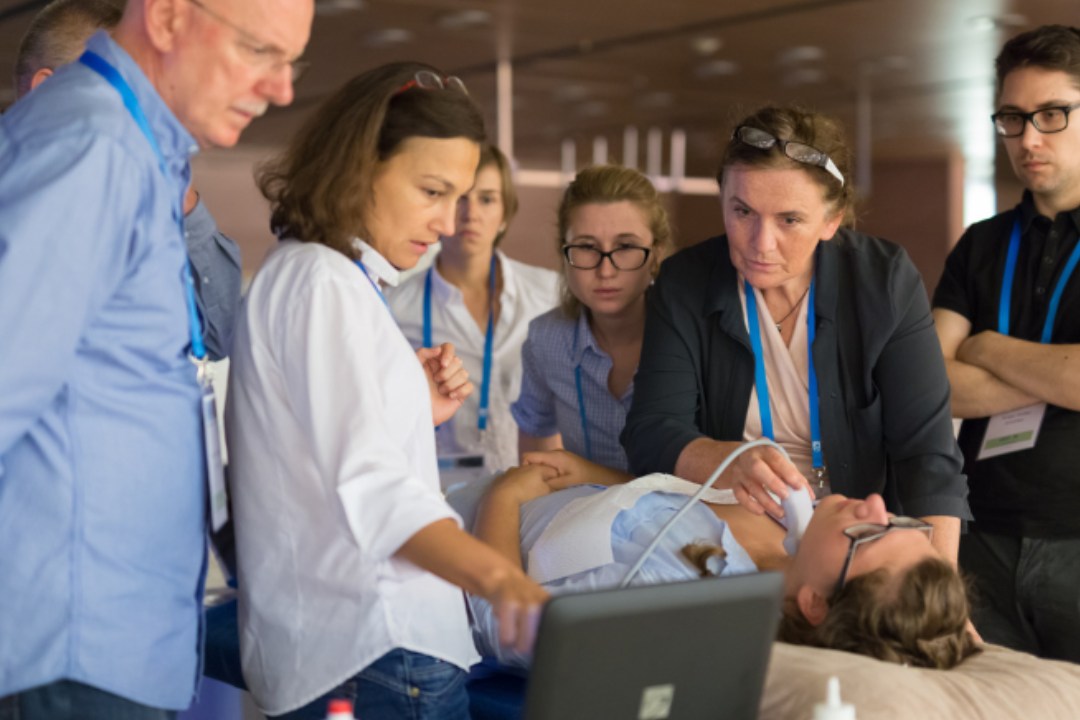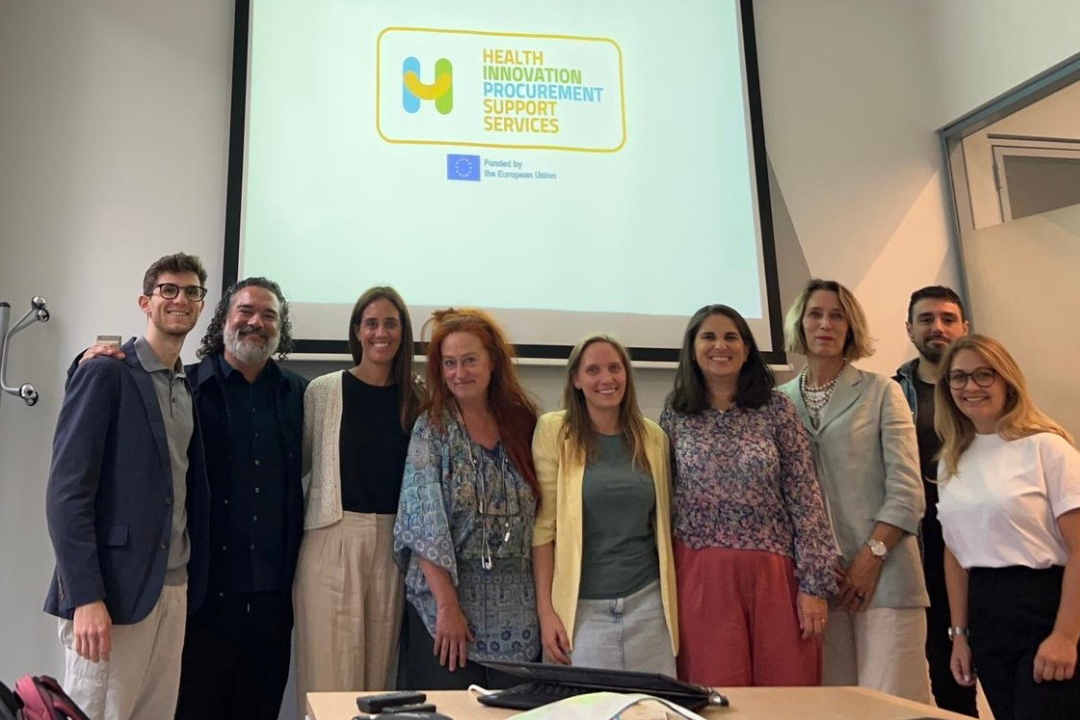17th December 2020
We now have the tools to create transformation in our healthcare systems, it’s up to us to connect and engage with change.
Solutions to some of the greatest healthcare challenges we face in Europe are now within our grasp, said EIT Health CEO, Jan-Philipp Beck as he closed the EIT Health Summit Series 2020, which focused on how innovation can be adopted to create impact for healthcare workers, patients and the European health economy.
He said: “I’m struck by how far we’ve come; we are already talking about a not too distant future where transformative solutions to some of our greatest challenges can become an everyday reality.”
EIT Health’s Summit Series 2020 held across four days over two weeks in November and December, explored major topics that are critical to delivering better care and future-proofing our healthcare systems; the adoption of artificial intelligence (AI), the transition to High Value Care (HVC) and the creation of New Business Models that suit twenty-first century innovations.
Jan-Phillip added: “We are not here talking about the same things each year, we are truly seeing progress. Although there are weaknesses and challenges, we must also credit ourselves, each and every one of us, for our contribution, because change is never easy to achieve.”
Every year, the EIT Health Summit brings together health leaders from the worlds of business, education, research and healthcare delivery to connect, share knowledge and inspire healthcare stakeholders to take action. Usually in person, this year’s event was held online due to COVID-19 restrictions but that didn’t stop 1,500 delegates registering to tune into the latest thinking in healthcare innovation.
Implementing AI
The growing and ageing population in Europe, combined with the rise of chronic conditions means we must work smarter and utilising digital technology, such as artificial intelligence (AI) will soon be a distinct reality.
John Halamka, president of the Mayo Clinic Platform, told delegates: “It is increasingly challenging with COVID-19 and the explosion of demand for services to have every visit [at the practice]. It means we need to develop more care at a distance, which means more algorithms, more chat bots and more AI enabled workflow so we can be more efficient. There is no question that algorithms will explode over the next two to three years.”
AI’s ability to learn and read reams of data makes it a powerful tool in assisting practitioners with treatment decisions and unburdening them of monotonous administrative tasks.
Experts said AI will not replace clinicians but those clinicians who use AI will replace those who don’t.
Less waste, better care
Tackling healthcare spending while enhancing treatment outcomes is another critical challenge we face. Evidence suggests not all healthcare spending is contributing to better outcomes for patients. The World Health Organisation and OECD the estimate that around 30 per cent of all resources are spent on avoidable costs, unnecessary treatment or administrative efficiencies.
The HVC concept aims to put the patient at the centre of treatment by focusing on outcomes that matter to them most.
Describing its impact, Christina Åkerman, Affiliate Faculty from Dell Medical School said: “The improvement potential is huge. We need to take the waste out of the system. We do not need more care but better health.”
Speakers urged healthcare practitioners not to be intimidated by HVC – it doesn’t demand a new system but instead requires a recalibration of the resources we already have available.
Pieter de Bey, director of Santeon, a network of seven hospitals delivering healthcare nationally across the Netherlands through HVC said: “[The most important advice is to] define value outcomes together with patients and use what’s already out there – you don’t need to reinvent the wheel.”
Novel solutions require novel approaches
Yet, innovative solutions need New Business Models that are fit-for-purpose.
Dr Kristina Lagerstedt, co-founder and CEO of 1928 Diagnostics, which uses data to help hospitals trace and predict outbreaks of antibiotic resistant superbugs, said it was important to recognise that her business is a technology company as much as a digital medicine company.
“We want to introduce business models from tech into the healthcare space. It’s too early to do it now on a broad basis but by 2025 I really think it will be the case,” she predicted.
But for these business models to thrive, they require an environment that’s prepared for healthcare innovation.
In Germany, the new Digital Care Act is doing just that by opening up the healthcare system to innovative treatments, enabling patients greater access to digital health solutions.
Gottfried Ludewig, director-general of digitalisation and innovation at the German Federal Ministry of Health, who helped establish the new legislation commented: “We want to reimburse the best treatment possible.”
Beck said these developments are positive as it was clear that regulatory and reimbursement frameworks are slowly opening up.
“We are talking about novel solutions and therefore novel approaches that can only be found together in collaboration,” he added.
EIT Health: ‘a European innovation success story’
EIT Health connects the worlds of business, research, education and healthcare delivery to stimulate and accelerate healthcare innovation. The annual EIT Health Catapult Awards held at the Summit provide a platform where some of the brightest European health start-ups compete for a share of €210,000 and a place on the unique Catapult training programme, which fast tracks their company’s development and visibility. . You can view the Catapult winners here.
Delegates also had the opportunity to hear from health entrepreneurs in the ‘Meet the Innovators’ sessions, which showcased 14 of the most exciting innovative health projects from across the EIT Health community.
Mariya Gabriel, European Commissioner for Innovation, Research, Culture, Education, Youth and Sport, who joined the close of the Summit Series, credited health start-ups for helping to strengthen Europe’s economy.
“They are key to Europe’s competitiveness, our capacity to innovate and our strategic technological leadership,” she said.
In fact, a recent study on innovation in medical technologies published by MedTech Europe, found there are more than 32,000 MedTech companies in Europe, while more than €3.5bn were invested in European health start-ups in 2019, making it the third largest sector after FinTech and software.[1]
Gabriel said while difficulty in accessing funding in the early stages is significantly hindering progress, EIT Health is filling this critical gap.
She said: “We are working together across borders, sharing knowledge and resources and improving heath and care systems together. EIT is a great success story of European innovation. This innovation model is working and delivering impact on some of Europe’s greatest societal challenges.”
If you missed the Summit Series don’t worry, you can watch the debates and presentations from world-leading experts in health innovation, as well as the Meet the Innovators sessions here.
[1] Innovation in Medical Technologies, MedTech Europe (October 2020)
EIT Health welcomes eight new Partners

These new additions to the membership will enrich the EIT Health network with their collective expertise.
Machine learning in healthcare: Uses, benefits and pioneers in the field

Uncover how machine learning is revolutionising healthcare, making it more accessible, cost-effective, and tailored to individual patient needs.
HIPSS Project Kick-off: A European Platform for Health Innovation Procurement Support

Creating a set of services and tools on healthcare innovation procurement